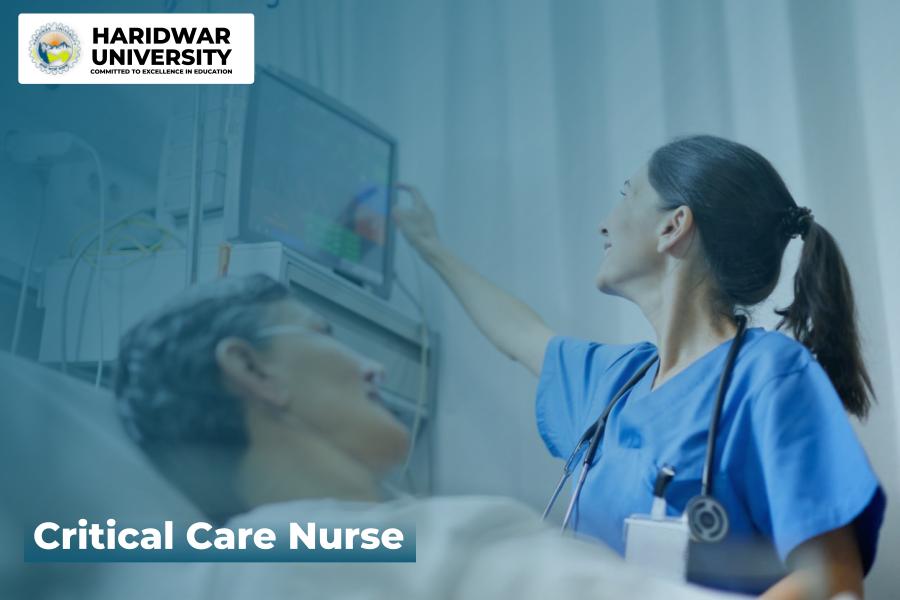Completing a Bachelor of Science in Nursing (BSc Nursing) opens up a multitude of career options and opportunities, both in the healthcare sector and in related fields. Nursing is a profession that has witnessed rapid growth in recent years due to the increasing demand for healthcare services globally. Graduates of BSc Nursing can pursue clinical, academic, administrative, and entrepreneurial roles, both locally and internationally.
In this article, we will explore various career paths, further education opportunities, and the range of sectors in which BSc Nursing graduates can make a significant impact.
Clinical Roles After BSc Nursing
One of the most straightforward career paths after completing BSc Nursing is entering clinical practice. Hospitals, clinics, nursing homes, and other healthcare facilities offer numerous roles that graduates can pursue:
1. Registered Nurse (RN)
A registered nurse (RN) is a healthcare professional who is trained to provide patient care, administer medication, monitor patient health, and coordinate with doctors and other healthcare providers. After completing BSc Nursing, graduates must pass the licensing examination conducted by their respective country’s nursing board (e.g., NCLEX in the USA, NMC in India) to become a registered nurse.
Key Responsibilities:
- Monitoring patient health and recording vital signs
- Administering medications and treatments
- Assisting doctors during procedures
- Educating patients about healthcare and recovery processes
Work Environments:
- Hospitals
- Clinics
- Nursing homes
- Home healthcare services
2. Critical Care Nurse

Critical care nurses, also known as ICU nurses, specialize in caring for patients with life-threatening conditions. They work in intensive care units (ICUs) and require advanced knowledge of medical technologies and critical care procedures.
Key Responsibilities:
- Managing patients with severe illnesses or injuries
- Operating ventilators, monitors, and other medical devices
- Administering emergency medications and treatments
- Working in collaboration with other healthcare professionals
Work Environments:
- Intensive Care Units (ICUs)
- Emergency departments
- Trauma centers
3. Community Health Nurse

Community health nurses work in public health settings to promote wellness and disease prevention in communities. They educate individuals and groups on healthcare practices, provide vaccinations, and work on public health campaigns to improve the overall health of the population.
Key Responsibilities:
- Educating the public about healthcare and disease prevention
- Administering vaccines and medications
- Monitoring public health trends and providing healthcare services to underserved populations
- Collaborating with local authorities to address healthcare challenges
Work Environments:
- Community clinics
- Government health departments
- Non-governmental organizations (NGOs)
- Rural and urban outreach programs
4. Pediatric Nurse

Pediatric nurses specialize in providing care to children, from newborns to adolescents. They work closely with pediatricians and other healthcare professionals to address the unique healthcare needs of children.
Key Responsibilities:
- Monitoring the growth and development of children
- Administering vaccinations and medications
- Assisting in surgeries and medical procedures
- Providing support and education to families
Work Environments:
- Pediatric departments in hospitals
- Children’s clinics
- Schools and daycare centers
5. Home Healthcare Nurse

Home healthcare nurses provide personalized care to patients in their homes, helping them recover from illness or manage chronic conditions. This role is essential for patients who are elderly, disabled, or suffering from long-term illnesses.
Key Responsibilities:
- Providing basic healthcare services such as wound care, medication administration, and monitoring vital signs
- Assisting patients with mobility and daily living activities
- Educating patients and their families about home care and disease management
Work Environments:
- Patient homes
- Home healthcare agencies
Further Education Opportunities After BSc Nursing
Further education can open doors to advanced roles in healthcare, academia, and research. For BSc Nursing graduates, pursuing higher studies can lead to specialized and leadership positions in the nursing field.
1. Master of Science in Nursing (MSc Nursing)
An MSc Nursing degree allows graduates to specialize in areas such as critical care, mental health, pediatric nursing, and more. This advanced degree opens doors to leadership and teaching positions in healthcare institutions.
Key Specializations:
- Critical Care Nursing
- Mental Health Nursing
- Pediatric Nursing
- Neonatal Nursing
- Nurse Education
Career Opportunities After MSc Nursing:
- Nurse Practitioner (NP)
- Nurse Educator
- Nursing Supervisor
- Nurse Manager
- Clinical Nurse Specialist (CNS)
2. Postgraduate Diploma in Nursing (PGD Nursing)
A Postgraduate Diploma in Nursing offers BSc Nursing graduates an opportunity to specialize in a specific field of nursing. The course duration is shorter than an MSc program, usually spanning one to two years.
Popular Specializations:
- Oncology Nursing
- Gerontology Nursing
- Emergency and Trauma Nursing
- Cardiovascular Nursing
- Orthopedic Nursing
3. Doctor of Nursing Practice (DNP)
A Doctor of Nursing Practice (DNP) is a terminal degree in nursing that prepares nurses for the highest levels of clinical practice. DNPs take on leadership roles in healthcare organizations and contribute to policy-making and research.
Key Roles for DNP Graduates:
- Clinical Nurse Leader
- Nurse Executive
- Healthcare Policy Analyst
- Nursing Consultant
4. Master of Public Health (MPH)
An MPH degree is an excellent option for those interested in community health, public health campaigns, and policy-making. MPH graduates work in governmental and non-governmental organizations focusing on disease prevention, healthcare access, and health education.
Career Paths with an MPH:
- Public Health Officer
- Epidemiologist
- Health Policy Analyst
- Health Program Manager
5. PhD in Nursing
For those interested in research and academia, a PhD in Nursing offers the opportunity to contribute to scientific advancements in healthcare. PhD holders often work in research institutions, universities, and hospitals.
Key Roles for PhD Graduates:
- Nursing Professor
- Healthcare Researcher
- Clinical Scientist
- Nurse Research Director
Non-Clinical Career Opportunities After BSc Nursing
BSc Nursing graduates are not limited to clinical roles. Several non-clinical career paths offer opportunities to work in healthcare management, education, and other fields.
1. Nurse Educator
Nurse educators play a vital role in training the next generation of nurses. They work in nursing schools, colleges, and universities, designing curriculum, conducting lectures, and mentoring students.
Key Responsibilities:
- Teaching nursing students in classroom and clinical settings
- Developing nursing curriculum
- Conducting research in nursing education
- Advising students on academic and career choices
2. Healthcare Administrator
Healthcare administrators manage healthcare institutions, ensuring smooth operations and quality patient care. They oversee budgeting, staffing, policy implementation, and compliance with healthcare regulations.
Key Responsibilities:
- Managing hospital or clinic operations
- Supervising healthcare staff
- Developing and implementing healthcare policies
- Budgeting and financial management
Work Environments:
- Hospitals
- Nursing homes
- Clinics
- Health insurance companies
3. Clinical Research Associate
Clinical research associates are involved in managing clinical trials for new medications, medical devices, and treatment methods. They ensure that the trials comply with regulatory standards and provide accurate data for research.
Key Responsibilities:
- Overseeing clinical trial protocols
- Monitoring trial participants’ health and safety
- Analyzing trial data and preparing reports
- Coordinating with doctors, nurses, and other research staff
Work Environments:
- Pharmaceutical companies
- Research institutions
- Contract research organizations (CROs)
- Universities
4. Medical Writer
Medical writers create content related to healthcare, such as research articles, educational materials, and patient guides. This role requires excellent writing skills and the ability to translate complex medical information into easily understandable language.
Key Responsibilities:
- Writing and editing medical articles, research papers, and textbooks
- Preparing training materials for healthcare professionals
- Creating patient education materials
- Collaborating with doctors and researchers on content creation
Work Environments:
- Pharmaceutical companies
- Healthcare publishing firms
- Medical journals
- Freelance writing
5. Entrepreneurship in Healthcare
BSc Nursing graduates can explore entrepreneurial ventures, such as starting their own healthcare businesses. This could include setting up home healthcare services, launching nursing consultancies, or developing healthcare products.
Potential Business Ideas:
- Home healthcare services
- Nursing consultancy
- Healthcare product distribution
- Telehealth services
6. Medical Coding and Billing Specialist
Medical coders and billing specialists are responsible for translating healthcare services into standardized codes for billing and insurance purposes. BSc Nursing graduates with an understanding of healthcare systems can excel in this role.
Key Responsibilities:
- Coding medical procedures and diagnoses
- Managing patient billing information
- Ensuring compliance with healthcare coding regulations
- Communicating with healthcare providers and insurance companies
Work Environments:
- Hospitals
- Insurance companies
- Healthcare clinics
- Medical billing agencies
Best Courses After 12th
International Opportunities After BSc Nursing
Many BSc Nursing graduates opt to work abroad due to the high demand for qualified nurses in countries like the United States, Canada, Australia, and the UK. In addition to clinical roles, nurses can pursue opportunities in education, research, and healthcare management.
1. Registered Nurse Abroad
Countries like the USA, Canada, and the UK have a high demand for registered nurses. After completing BSc Nursing and passing the required licensing exams (e.g., NCLEX for the USA), graduates can apply for nursing positions in these countries.
2. Nursing in the Gulf Countries
The Gulf region, including countries like the UAE, Qatar, and Saudi Arabia, offers numerous opportunities for nurses. With tax-free salaries and additional benefits like housing and healthcare, many BSc Nursing graduates find attractive career prospects in this region.
3. International Healthcare Organizations
BSc Nursing graduates can work with international organizations like the World Health Organization (WHO), Red Cross, and Médecins Sans Frontières (Doctors Without Borders). These organizations require healthcare professionals to work on global health initiatives and provide care in disaster-stricken areas.
Conclusion
BSc Nursing opens the door to diverse career opportunities in clinical, administrative, research, and educational fields. Whether you choose to work as a registered nurse, pursue further studies, or explore entrepreneurial ventures, the skills and knowledge gained from your degree will serve as a strong foundation. The key to success lies in identifying your interests and strengths and aligning them with the right career path.
With the global healthcare sector constantly evolving, there has never been a better time to explore the vast potential that a BSc Nursing degree offers.










